A Rare Encounter with the Elusive Chuditch: Year 11 Biology Camp
The Year 11 Biology students headed off to the Perth Hills Discovery Centre in Mundaring, this week for the annual Biology Camp. With the help of their Biology teachers and the Nearer to Nature staff, students practised population sampling skills and deepened their understanding of the ecology of the South West.
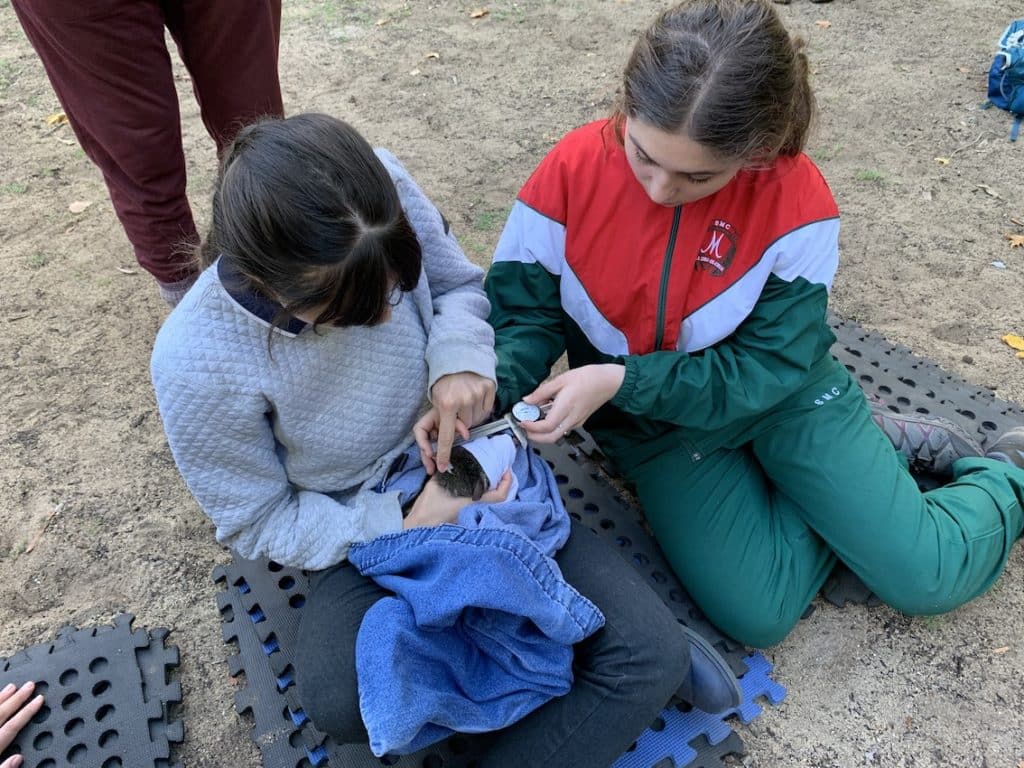
HIGHLIGHTS
The highlight of the camp was the trapping activity where students learnt how to capture animals and collect data from them in a safe and ethical manner, as part of the Western Shield conservation program. The students captured a beautiful female chuditch! A rare carnivorous marsupial only found in Western Australia. They were so fortunate given that they only encounter chuditches once or twice a year.

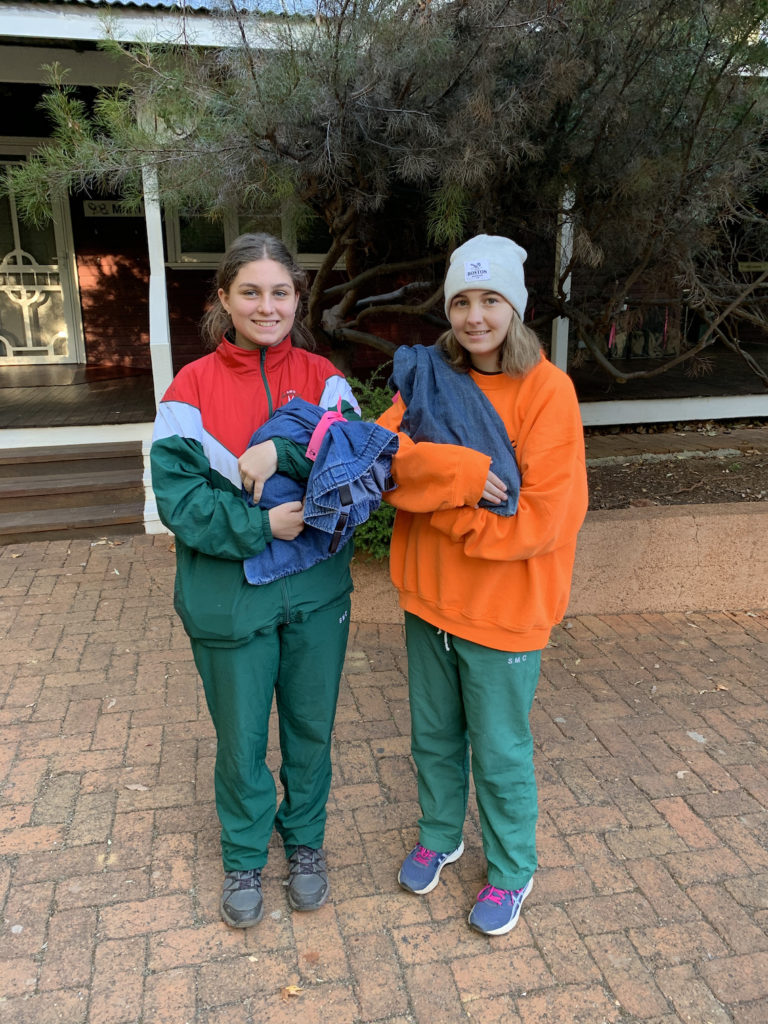
ACTIVITIES
Activities on the camp included:
- flora surveys (quadrats, transects, impact of bushfires, and xerophytic adaptations).
- a birds of prey interaction.
- participating in the Western Shield Conservation Program through animal trapping and data collection.
- interaction with marsupials such as the endangered woylie.
- a visit to Kaarakin Cockatoo Conservation Centre.

STUDENT REFLECTIONS
“I thoroughly enjoyed the flora survey. My favourite part was learning, and being able to identify, all the plants and trees in the Beelu Forest. It was rewarding being able to gather information and learn all about our environment. One specific thing I learnt was that lignotubers are bulbs under the ground containing everything a plant needs to reshoot and grow a new replica of themselves, especially after bushfires.” Sienna Patane
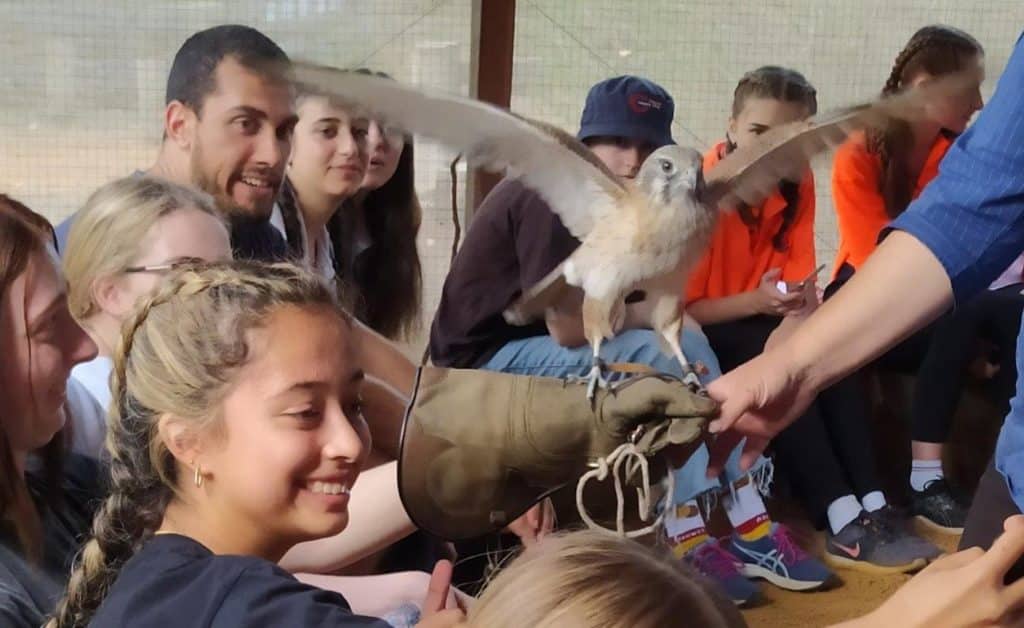
“During the bird of prey activity, Avon from Western Australia Birds of Prey Centre came and introduced us to some of Western Australia’s top predators. She taught us all about their effect on the environment and, most importantly, that the decrease of predator populations, such as eagles, falcons, and owls, is having a negative effect on the South West of Western Australia because they naturally help to control pests and maintain diversity. This encounter was extremely enjoyable as we got to hold the birds and see their amazing features up close.” Lahni Williamson
“Western Shield is a conservation program. They monitor and protect endemic and endangered species to maintain stable populations. Protection from predation is provided by the baiting and trapping of invasive species such as foxes or feral cats. Western Shield monitor native animal populations using capture-recapture methods and micro chipping to collect data about animals”. I enjoyed learning about the capture methods used as we could actively put in place what we have been learning in class. Although the wake up was a bit early and cold, the excitement that came from checking the traps, and the thrilling results, made it worth it. Having close interactions with the endemic animals we caught was unique and gave us a deeper appreciation of animals in our ecosystem that we may take for granted or may be unaware of.” Ruby Klass
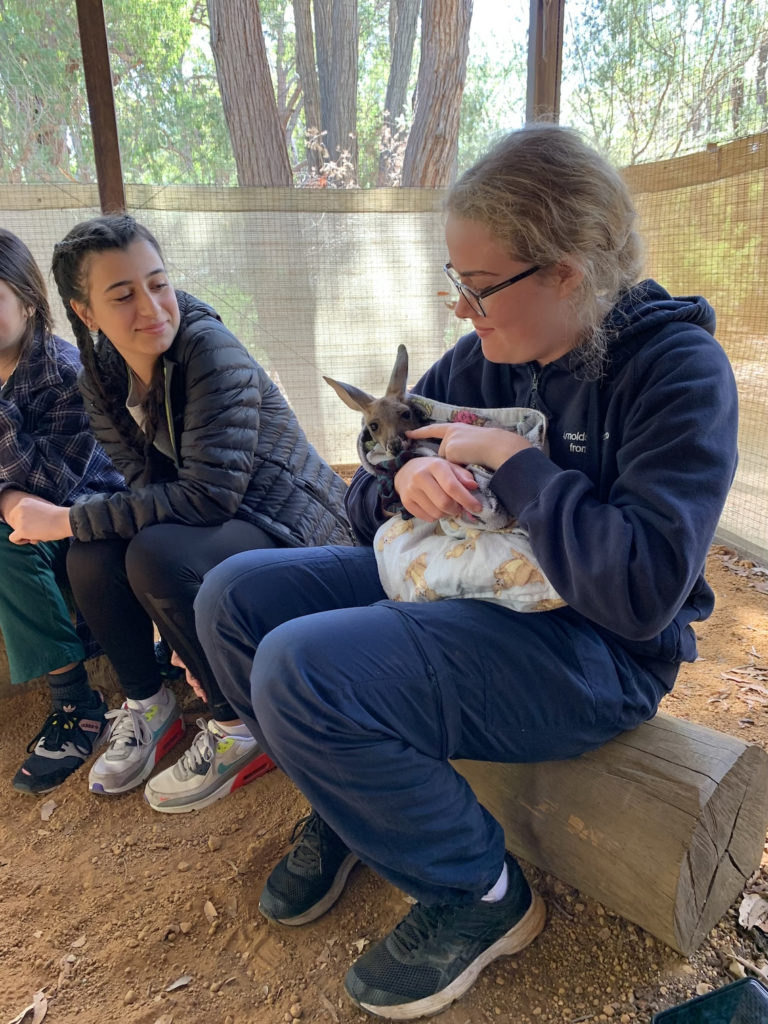
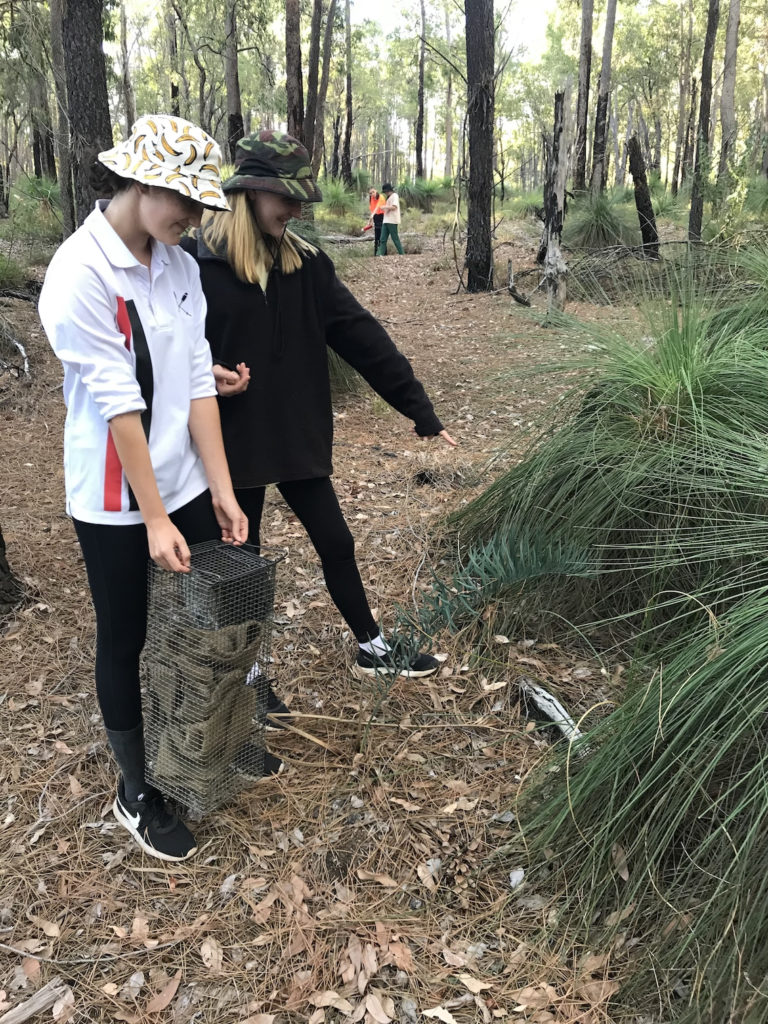
“A lovely lady named Sue from the Wildlife Rescue Group, who specialised in marsupials, come to the campsite to talk about the types of animals she looks after. She brought along three joeys, an echidna, a woylie, a brush-tailed possum, a forest red-tailed black cockatoo, and a Carnaby’s black cockatoo. Sue taught us how to differentiate between a female and male black cockatoo. We learnt to always pull over if we ever see an injured animal on the side of the road, especially if it is a mother. We learnt interesting facts and practical information, which I can apply when on my next camping trip.” Tia Leigh
“Kaarakin is a not-for-profit organisation that specialises in black cockatoo rescue, rehabilitation, and education. My favourite part of visiting the centre was seeing the birds I had previously met on work placement recovered from injury.” Felicity Dixon
Finally…
As always, our Santa girls were absolutely fantastic. They actively engaged with every aspect of camp and made the most of the wealth of knowledge provided by Nearer to Nature. We are so lucky to have such wonderful staff and students.
Callum Tilak, Science Teacher

Lee-Elle’s Insights from the ‘Make it 16’ Forum
Lee-Elle Cooper is a passionate Year 12 student who advocates for youth engagement and political participation. She has recently returned from the Make It 16 Forum in Canberra.

With Laurissa Knowles From Valley Depths to Mountain Peaks (1993)
Laurissa Knowles (1993) has had an incredible career journey so far, from Santa Maria College Teacher to Celebrant and Councillor.

Elevating Spaces: Diana Ellis’ Signature Touch & Architecture Magic
What happens when you mix a love for art, travel, nature, and creativity with construction and building? You get the essence of Diana Ellis’ career!
- AnalyticalSkills, Collaboration, ConnectingLearning2Life, CriticalThinking, Featured
Author: Santa Maria College
Santa Maria College is a vibrant girls school with a growing local presence and reputation. Our Mission is to educate young Mercy women who act with courage and compassion to enrich our world. Santa Maria College is located in Attadale in Western Australia, 16 km from the Perth CBD. We offer a Catholic education for girls in Years 5 – 12 and have 1300 students, including 152 boarders.







